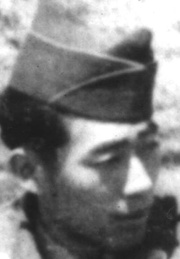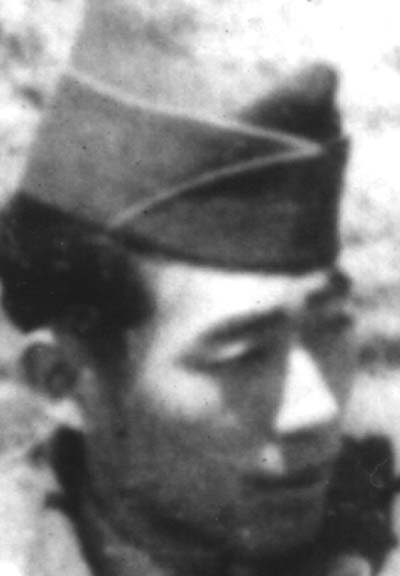
日系アメリカ人兵役体験記録データベース

Hitoshi G. Sameshima
Allied Translation and Interpretors Section, Headquarters 8th Army Judge Advocates Section - War Crimes Division
Interpreter/Translator/Interrogator
Other Countries: Philippines; Japan
Interpret, translate and interrogate - investigate
Victory Medal
Good Conduct Medal
Occupation Medal
Expert Rifleman Medal
K-rations, Army grub mess-kit style. Food better than what the enemy had.
Used rain caught in tent flaps in makeshift showers.
Sang songs, visit with natives. Visited places that were not off limits.
Another episode that I cannot forget is seeing, after arriving in Japan in October of 1945, the starving and elderly so weak some could not even stand. I was transferred to 8th Army Headquarters Judge Advocates section to work on the B class War Crimes with the Criminal Investigation Detachment (C.I.D.) along with three other Nisei. We were housed in the warehouse of the Silk Mill in Yokohama. I cannot forget or erase from my memory, seeing Japanese women, some with babies on their backs scooping the left-overs that the G.I.'s dumped into the garbage cans after meals. The sight of one lady scooping the slop with a can and giving it to the baby she carried on her who had scabs all over its face, body, and arms, brought tears to my eyes. From that day on I would tell the grub servers I was hungry and had them completely fill my mess kit. I would then eat half and take the balance out to share it with those waiting outside, especially those with babies and children. To this day when these secenes comes to mind, tears fill my eyes. How I would like to have shared this with people who don't know how well off they are. There are many stories like this to tell.


